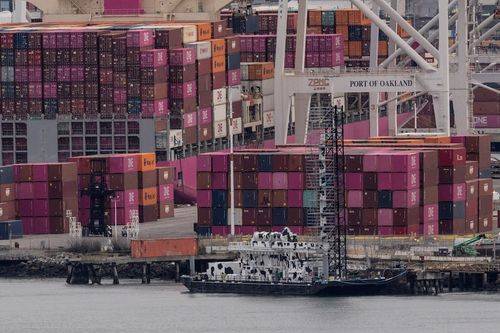Title: Four African Countries Impacted by Donald Trump's Recent US Tariffs: Nigeria, Lesotho, South Africa, and Kenya
In 2018, former U.S. President Donald Trump launched new tariffs under his "America First" trade policy, which extended to the world far-reaching effects. Even though the policy mostly hit China, its effects crossed continents to other parts of the world, including Africa. Among the most affected African countries were Nigeria, Lesotho, South Africa, and Kenya. They experienced trade disruptions and economic strain from Trump's trade policies, which highlighted the broader implications of global trade wars.
1. Nigeria
Nigeria, the most populous country in Africa and one of its largest economies, was greatly affected by Trump's tariffs. The U.S. imposed extra tariffs on the steel and aluminum imports of many nations, and Nigeria found itself in a tricky situation due to the nation's reliance on oil exports and increasing tendency towards diversification. In Nigeria, the new tariffs became an added weight on the manufacturing sector, that is, companies that deal with steel and aluminum. The duties on imports threatened to stunt Nigeria's industrialization, which already had its progress hampered by such other domestic ailments as corruption, insecurity, and poor infrastructure.
In addition, Nigeria's growing agricultural exports, like cassava and sesame seeds, encountered more stiff competition from other African nations that were not tariffed. Even though Nigeria has generally concentrated on the U.S. market for agricultural exports, the tariffs raised the challenge of Nigerian commodities remaining competitive in the international market. The country's trade balance suffered as a result, further contributing to Nigeria's economic hardship.
2. Lesotho
Lesotho, a small landlocked nation in Southern Africa, was similarly confronted with the same dilemma as its bigger counterparts following the imposition of U.S. tariffs. Being an AGOA beneficiary country, Lesotho had been accorded duty-free access to the U.S. market for a myriad of products, including clothes and textiles. The tariffs undermined Lesotho's competitive advantage in the global textile business.
The Lesotho economy heavily depends on exportation of textiles to the United States market, and with imposition of tariffs, it became costlier to send these goods outside, thereby hindering competition of goods from other nations that lacked such tariffs. The effect was massive decline of the textile exporting industry, which is very critical to Lesotho's workforce and economy. Besides, the reduction in earnings from exports led to increased levels of poverty and unemployment in Lesotho since the country could not maintain its economic stability because of the increased cost of doing business.
3. South Africa
The second-largest economy on the continent, South Africa, was also an African nation affected by Trump's tariffs. In particular, South Africa's steel and aluminum industries were hit hard, as the U.S. imposed tariffs on those commodities. Since South Africa is a major producer of steel and aluminum, the country's export-oriented manufacturing sector experienced a steep decline.
Aside from tariffs, South Africa's total trade relationship with America was also dented by evolving global trade paradigms during the Trump period. South African mining sector that exports huge quantities of platinum, gold, and diamonds was severely impacted as other countries, particularly in Asia, competed for more of the U.S. market. While South Africa remained one of the largest African trading partners with the U.S., these tariffs strained its export performance, leading to a more challenging economic environment.
The South African government attempted to negotiate exceptions, but the lingering effect of the tariffs combined with Trump's "America First" rhetoric introduced uncertainty that subdued long-term growth opportunities.
4. Kenya
Kenya, the largest economy in East Africa, suffered as well due to Trump's tariffs. Though the country is not heavily dependent on the U.S. market for steel or aluminum, it does export tea, coffee, and cut flowers. The tariffs affected these indirectly by disrupting the world supply chain and increasing the cost of shipping, making Kenyan exports pricier abroad.
To these, Kenya's economy was also exposed to the ripple effect of rising oil prices, the byproduct of international trade tensions and devalued exchange. The China-U.S. trade tension also promoted price volatility, affecting Kenya's bill of imports as well as retail prices. In as much as Kenya has diversified its destinations of trade, the additional tariffs thus provided more obstacles through which the country had to navigate to strengthen its link to the U.S. as well as its export-led growth.
Conclusion
The U.S. tariffs imposed by Donald Trump, even if targeted in large measure toward China and other large economic actors, were well-received by some of the world's smaller economies, including some African economies. Nigeria, Lesotho, South Africa, and Kenya were impacted to some degree through a higher cost of production, export receipt losses, or heightened trade distortions. The impact of these tariffs served to underscore the interconnectedness of the global economy and the vulnerabilities that smaller and emerging economies face when large players in global trade turn protectionist. While the Trump administration's policies were meant to shield American companies, they also served to demonstrate the necessity for balance between domestic and global trade partners' interests, especially in the case of Africa's rising trade opportunities.



No comments yet
Be the first to share your thoughts!